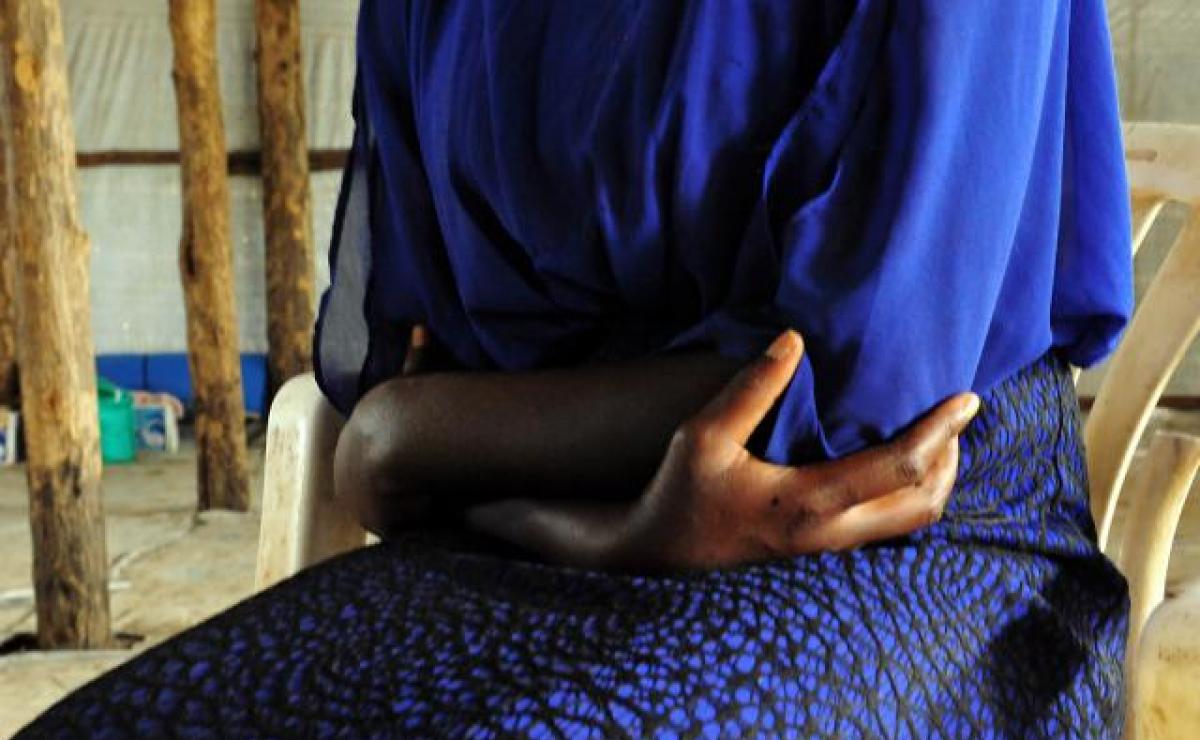A total absence of law

LWF supports survivors of gender-based violence in South Sudan
(LWI) Amina* was lying under a palm tree when a caseworker from The Lutheran World Federation (LWF) found her. The teen had been covering herself with palm leaves after walking for days from South Sudan to Uganda. Once she had reached the reception center in northern Uganda, the strength she had needed to make the journey left her.
“She looked pale, sick and tired. When we offered to help, she didn’t hesitate,’’ Annet Nansubuga, LWF field worker for gender-based violence, says. Amina was taken to Palorinya health centre for medical examinations, where she was diagnosed positive for malaria and negative in HIV/ AIDS. It was also discovered that the Amina was three months pregnant, and had been raped when fleeing South Sudan. She had no family or spouse to support her.
“Amina” is one of many South Sudanese refugees who were raped when fleeing to Uganda.
Tip of an iceberg
“Seeing women in her condition makes me angry,” says Nansubuga. The 38-year-old has been working with cases of gender based violence for four years, first in South Sudan and since December with South Sudanese refugees in Uganda. She deals with 20 to 30 cases like this every month, the tip of an iceberg of violence against refugees, most of whom are female.
Amina witnessed the killing of her mother during the violent clashes in the South Sudanese capital in Juba. “All this happened in an open marketplace where we had gone to buy food. I saw my mother draw her last breath after being shot. So many people were killed that day,” she remembers.
LWF offers protection and support to survivors of gender-based violence.
After that, she was left to herself. “I had no one to support me. I fetched water and helped clean people’s homes in exchange for money and food,’’ she says. Amina does not say anything more about what happened in Juba, but she was already pregnant when she joined a group of neighbors leaving the city to flee to Uganda. On the road, she was attacked and raped.
Systematic abuse
Since the South Sudanese crisis started in December 2013, human rights organizations have reported the use of gang rape by all parties in the conflict. A report by the United Nations Mission in South Sudan, submitted to the UN Human Rights Council, details 217 women’s accounts of rape during one week last July alone.
A mother and daughter on their way to the registration point. In Palorinya, 89 percent of the refugees are women and children.
The stories of the refugees suggest this kind of violence is used by the parties in the conflict to drive people out of cities that are strategically important. Those arriving at Palorinya at the beginning of February this year all told the same story of a particularly horrific gang rape and torture in a public market place. Residents were told to leave the city or the same would happen to them. “There is nobody left in Kajo-Keji now,” an old man says. They all fled after the incident.
Baby Emmanuel was born on the road, while his mother fled alone with five little children. The family does not know where the father is.
Close to him, a group of women mourn husbands who have been killed or abducted. Many women in Palorinya do not know what happened to their spouses and many witnessed the killing of brothers and uncles. Of the refugees arriving from South Sudan, 89 percent are women and children. The refugees in Palorinya are predominantly female, very old or very young. The absence of middle-aged men is as striking as the accounts of violence against women and girls.
“There is a total absence of law,” Nansubuga says. “Early marriage, pregnant teenagers and even rape is looked upon as normal.” Nansubuga is convinced that many refugees have experienced gender-based violence when making the dangerous journey through the bush. “Most of the violence happened when they were still in South Sudan,” she says. The United Nations High Commissioner for Refugees (UNHCR) data from last month suggests that 25 survivors are identified each week – and about 10 new incidents happen in the camps or nearby.
Challenge to support the survivors
LWF field extension staff Annet Nansubuga is responsible for identifying and assisting survivors of gender-based violence.
With hundreds of refugees still arriving in northern Uganda every day, it is an overwhelming challenge to protect the vulnerable and to support the survivors of gender-based violence. Amina was placed together with other unaccompanied minors and now receives meals, clothing and counselling. Nansubuga, whom Amina calls “Aunt Annet”, makes sure to look in on her every day. ‘’She was broken and had almost given up on life,” Nansubuga recalls. “It is hard to see someone like that. But they lean on me, and I cannot let them see how much their stories and this situation affect me.”
Today, Amina passes the days looking after the other children and taking out her school books, in the hope of finishing her education. ‘’I don’t want to go back to South Sudan. I don’t have anything or anyone left there. I want to stay in Uganda under Aunt Annet’s care, have my child and go back to school,” she says. “I want to be a nurse in future and save people’s lives, especially war victims.’’
When asked about the future of her child, she does not answer.
In the refugee settlements in Adjumani and Palorinya, LWF among others provides protection services. Case workers identify survivors of gender-based violence, people with special needs and children at risk and make sure they receive appropriate care. Since the beginning of this year, 12,920 people have been trained on gender-based violence prevention or referred for legal assistance after being violated. LWF has developed a process of referral for survivors in English and South Sudanese Arabic.
LWF/ C. Kästner
*Name has been changed for protection

